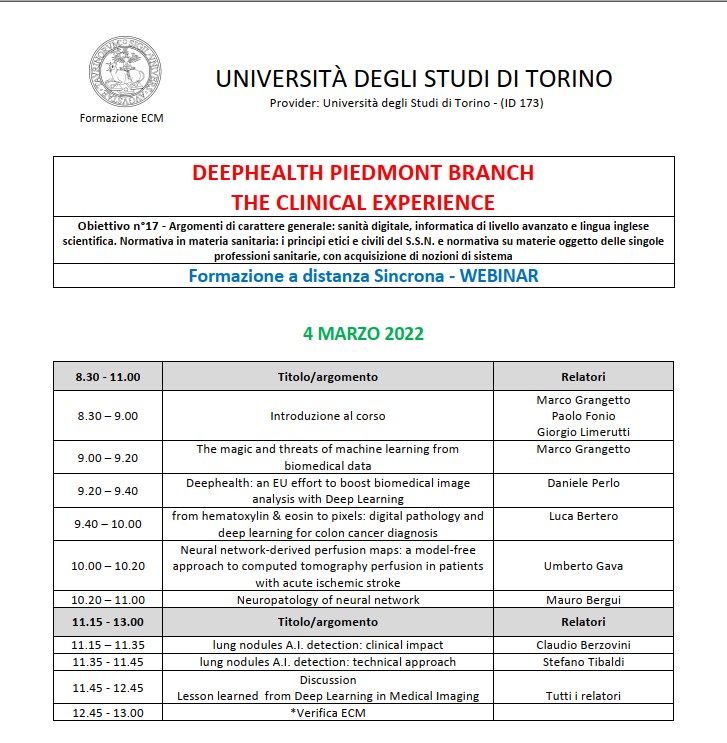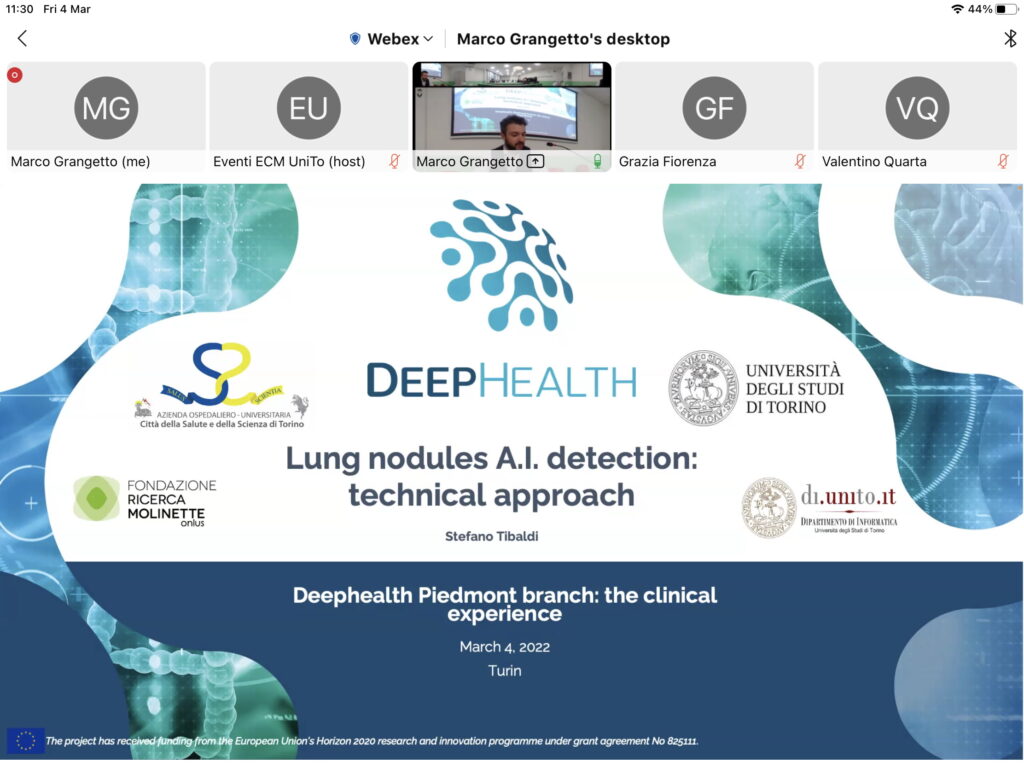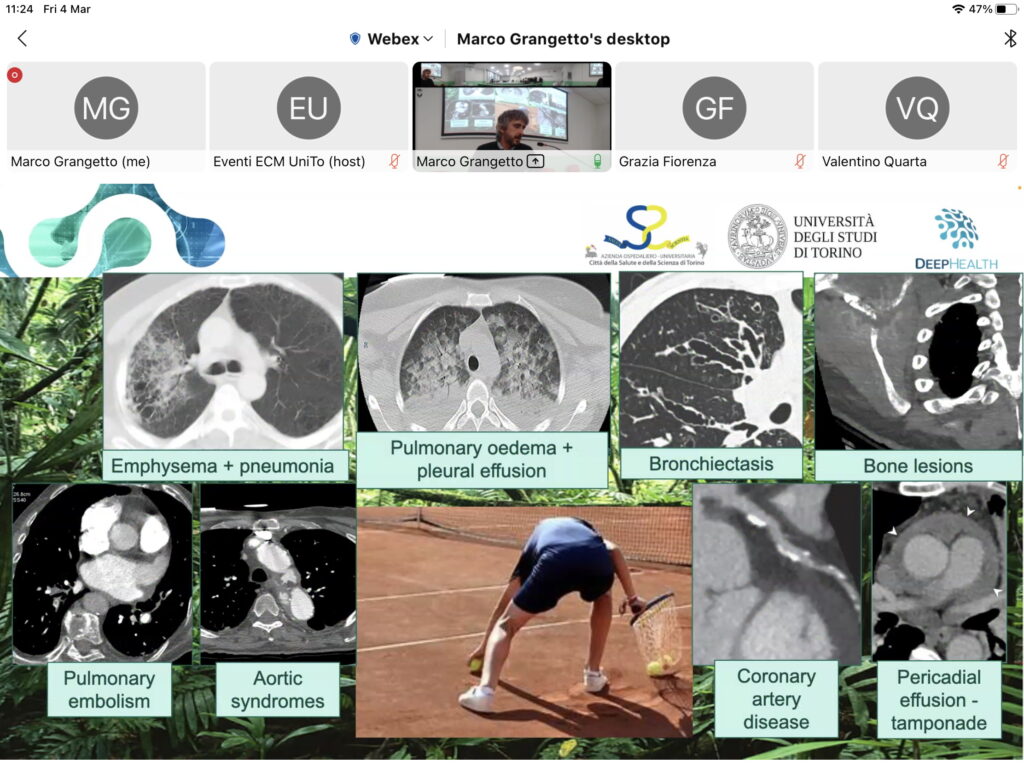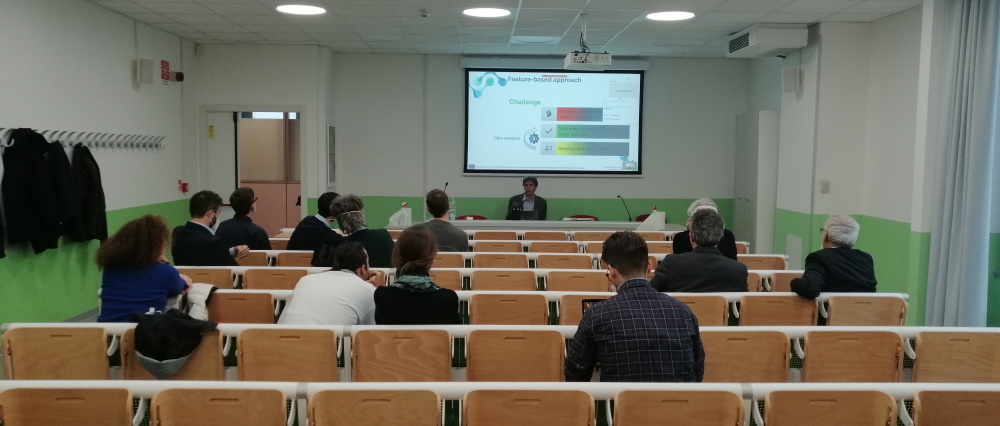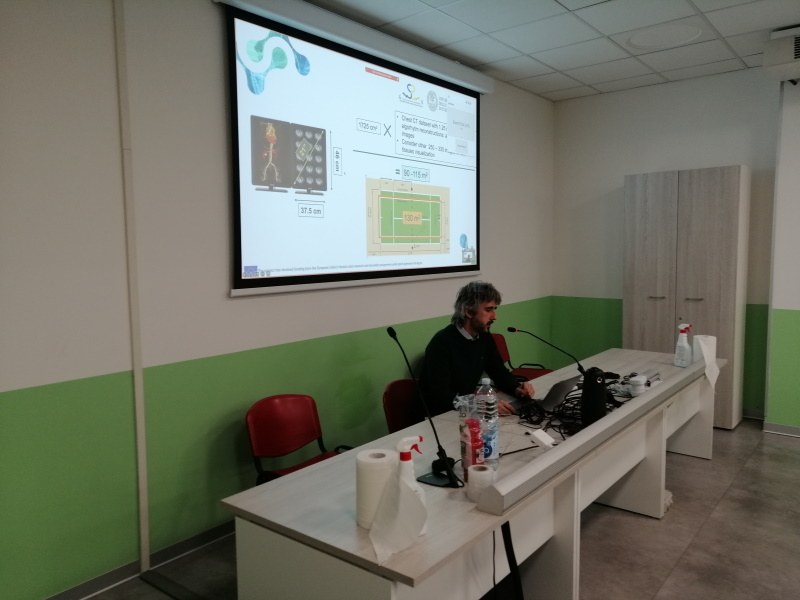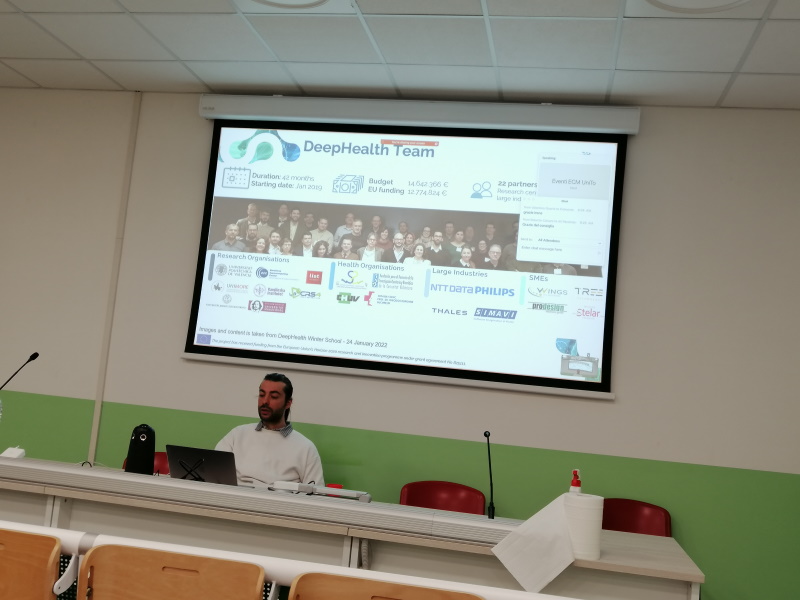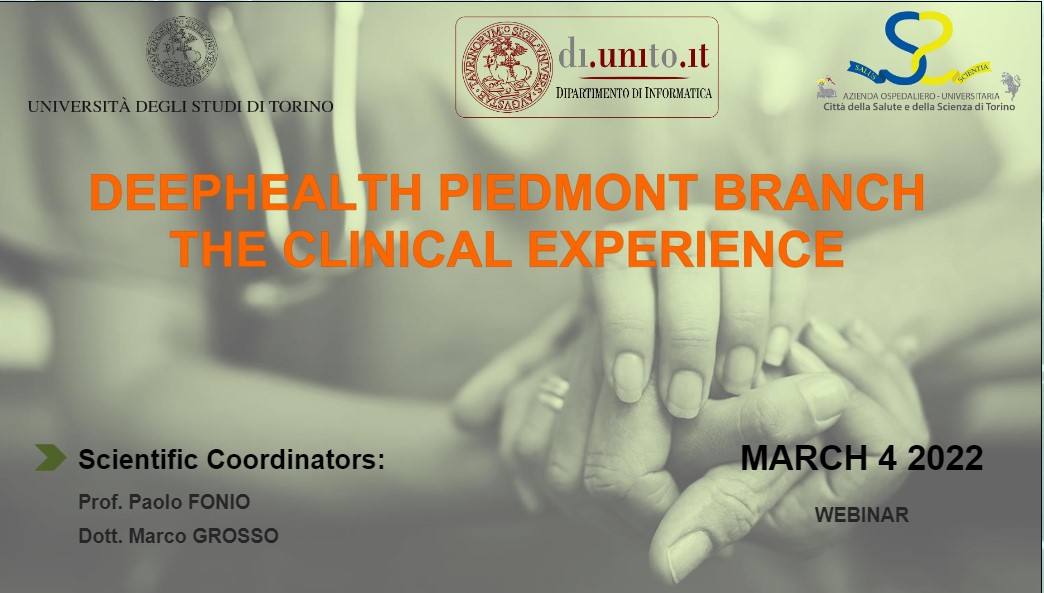Healthcare is one of the key sectors of global economy, particularly in Europe, where it accounts for 9% of the average GDP. The health sector benefits, directly or indirectly, from most scientific and technological advances, including those originally developed for other non-health related sectors. The use of technology in health is clearly a major driver towards more efficient healthcare, from whom both people and national health service budgets can benefit. European national healthcare systems are generating large biomedical imaging datasets because many medical examinations use image-based processes; these datasets are growing and constitute a large database of knowledge because most of their value derives from expert interpretations of those images.
To promote eHealth innovation and improvement in Europe, the Rad4AI project, the Italian branch of the European DeepHealth project, promotes the development of standardized software to manipulate and process images in a more efficient way, thus increasing the productivity of professionals working on biomedical images. Using the HPC4AI resources of the Piedmont Region (high performance computers), Rad4AI addresses the e-Health challenge by proposing a hybrid HPC + Big Data solution to efficiently support state-of-the-art Deep Learning algorithms to improve European medical software platforms.
On March 4, 2022, the webinar “DeepHealth Piedmont Branch – The clinical experience” was held at the headquarters of the Computer Science Department of the University of Turin. The seminar issued training credits valid for the whole European territory, gained by passing a final test, and saw many protagonists of the DeepHealth project among the teachers. More than 200 professionals participated in the webinar online while the teachers were present in the University facility. The communications explored all the ambitions of the Turin team’s research products, made up of two University Departments, Computer Science and Neuroscience, and a large health facility, Città della Salute e Scienza di Torino.
